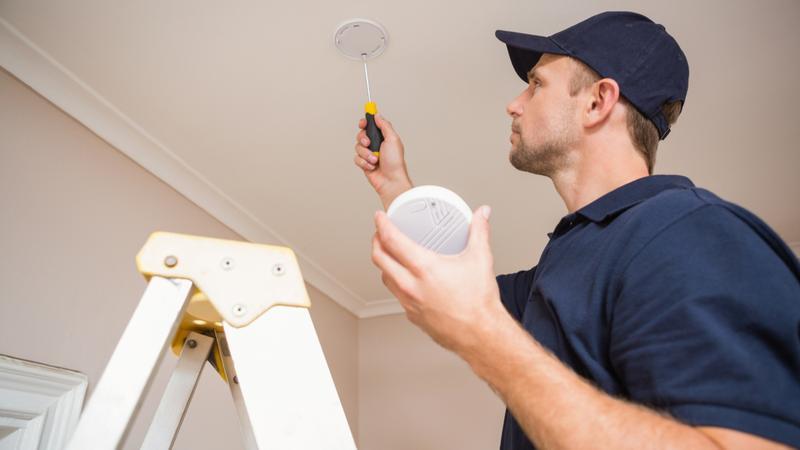No one wants to contemplate the possibility of their home catching fire, but there are several steps homeowners can take to reduce the odds of a house fire and give themselves peace of mind.
House fires are generally preventable, but some are the result of circumstances out of people’s control. Homeowners can avoid fires caused by cooking, smoking, candles, and fireplaces. Fire can be caused by boiler or gas furnace explosions. Wildfires, such as those in British Columbia or California, can also threaten your home, but those are out of your control.
Most fire prevention tips apply to any home, regardless of size or location.
- Install smoke detectors on each floor of the home and in utility rooms, as well as rooms with fireplaces and appliances, crawlspaces, and workshops. Be sure to test all your smoke detectors twice a year — doing it when we adjust the clocks forward or backward can be a great way to remember. Any reputable property management company will have a testing program in place to make sure residents’ smoke detectors and building alarms are working in rental units.
- Pay attention to your boiler or gas furnace and get them inspected regularly as per the manufacturer’s guidance, as flaws left undetected could start as a small problem that leads to something catastrophic. Boilers in particular experience wide swings in temperature and operate under extreme pressure.
- Remove clutter and flammable items in your kitchen, where fires commonly start. Remember, too, that water will not put out a grease fire! Make sure you have the proper fire extinguisher for electrical fires handy somewhere in your kitchen. Clean your oven regularly, too, as any build-ups can catch fire.
- Never leave burning candles and/or cigarettes unattended. And when you put them out, make sure they’re truly out. That goes for outdoor smoking, too — use a proper ash tray rather than stomping out a butt that might have little life left in it after you go back inside.
- Create a home inventory list of your contents. While this won’t prevent fires, it will help you significantly if a fire should occur and you need to make a home insurance claim to replace your items.
- If you have a fireplace/chimney, clean it annually. Build-ups in these areas are a common cause of house fires.
- Inspect all outlets, cords, and surge protectors regularly for fraying. People have more devices plugged into electrical outlets than ever before, so be sure you’re not plugging in too many things into one outlet. Any new wiring should be done by a professional and inspected.
There’s only so much you can do to prevent fires in your home. Focus on what you can control but be prepared in case of the worst. Be sure to have a fire plan in place with your family and practice it regularly, have an emergency bag packed, and know what your communication plan is should you no longer have access to your mobile phone.
Finally, make sure you have the right homeowners insurance that reflects the house you live in and all your contents. Most standard home insurance policies cover fires, but as always, be sure to read the fine print. If you feel it’s time to update your insurance policy, visit Insurancehotline.com to check out your options and compare rates.

